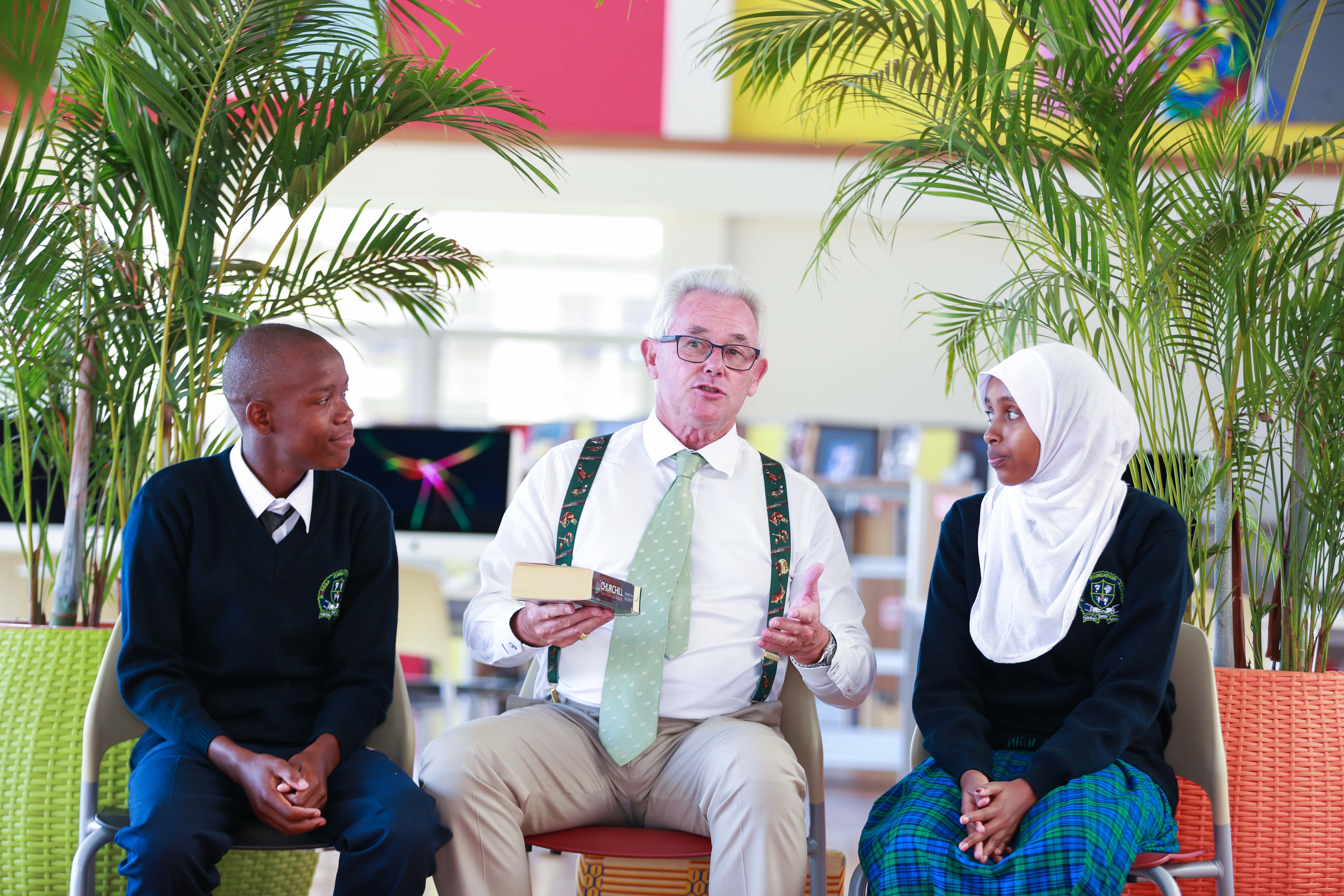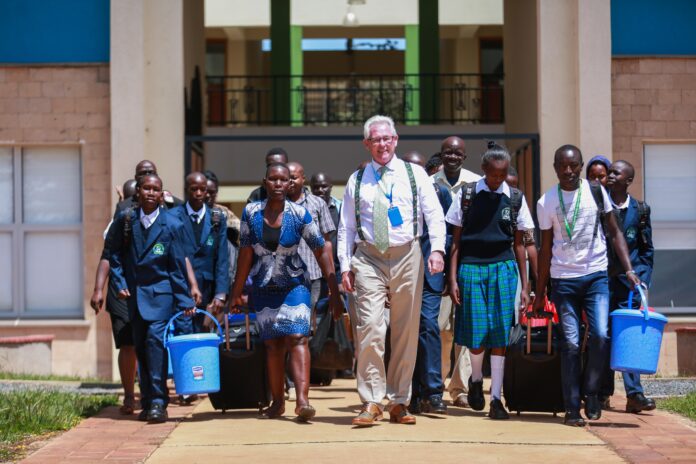As the world marks the first ever International Day of Education, Safaricom (NSE: SCOM) has announced that it has set aside KES 40 million to support 100 students through secondary school at over 90 different learning institutions around the country.
The students all come from needy backgrounds with two selected from each county and the rest being those living with disabilities. The students were picked from the cohort of learners who had applied for the M-PESA Foundation Academy but were unable to secure a slot due to limited capacity.
Each of the 47 counties produced a boy and a girl with the students being allowed to join the school they had been admitted.
“As part of our 18th-anniversary celebrations, we promised to support 100 children through secondary school. We completed the selection process in December and we are happy to see that all the students have now reported to their respective schools”, said Bob Collymore Chief Executive Officer, Safaricom.

The initiative will see Safaricom cover tuition fees, uniforms and school shopping for the 4 years of secondary school learning.
Earlier this year Safaricom launched the Ndoto Zetu initiative after a new year’s challenge to Safaricom CEO Bob Collymore by a local comedian to support the Divas Power programme. Mr. Collymore pledged to educate 18 girls from Divas Power and also invited other Kenyans to share their dreams and aspirations that they hope to achieve this year that will have a positive effect on their communities. The telco will then select 500 of such projects to support.
“We remain committed to our promise to Kenyans that we will be the brand that is present through the good times and the bad, the highs and the lows, the easy days and the tough ones. Whether it is by supporting bright but needy students or providing health facilities and water projects”, said Mr. Collymore
Since 2003, Safaricom through its two charitable arms; Safaricom and M-PESA Foundations, has impacted over 1.2 million learners in Primary, Secondary and vocational training institutions across the country.
The support has been mainly through; increasing access to education opportunities for children with disabilities and those from nomadic pastoralist communities; providing access to ICT education for both teaches and students; and improving both teacher and student competencies in literacy and numeracy.









